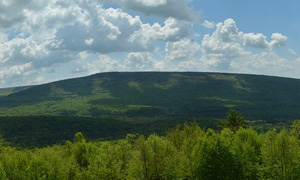In 2015, the Chester County Conservation District distributed more than 5000 milkweed seeds to teachers and students that participated in the Chester County Envirothon. The seeds were part of the District’s Milkweeds for Monarchs program to encourage residents of Chester County to plant milkweed plants for the continued survival of the Monarch Butterfly.
The Monarch butterfly is coming under increasing threat for many reasons, including the decline of resting areas the butterflies use. Commonly called “way stations”, these resting areas are critical to the Monarch on their long migratory journey across the United States. The monarch butterfly population is in danger because they cannot survive without milkweed. The caterpillars eat the plants and the butterflies lay their eggs on the milkweed leaves and stalk. Scientists estimate that 33 million monarchs remain, – more than a 90 percent drop across North America.
Let’s learn from the goal of the Chester County Conservation District’s to replant old fields, and create new gardens of milkweeds for Monarchs to feed upon during their amazing migration. We encourage you to do the same in your county. Perhaps we can see amazing fields of milkweeds flowering, just as we marvel at those beautiful fields of sunflowers laid out in late summer, Milkweeds for Monarch – spread the word, join the efforts, plant a seed – plant a lot of seeds.
To find seeds native to Pennsylvania, visit: http://www.xerces.org/milkweed-seed-finder/
Thanks to the USDA NRCS flier, The Butterfly Effect: Conservation Help Rare Butterfly by Elisa O ‘Halloran www.nrcs.usda.gov for the technical information. You can also learn more by contacting the North American Pollinator Protection Campaign www.nappc.org or, The Xerces Society www.xerces.org
Article by Chotty Sprenkle, Chester County Conservation District




